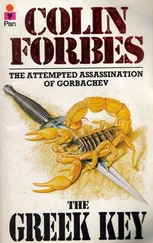Colleen McCullough - 2. The Grass Crown
Здесь есть возможность читать онлайн «Colleen McCullough - 2. The Grass Crown» весь текст электронной книги совершенно бесплатно (целиком полную версию без сокращений). В некоторых случаях можно слушать аудио, скачать через торрент в формате fb2 и присутствует краткое содержание. Жанр: Современная проза. Описание произведения, (предисловие) а так же отзывы посетителей доступны на портале библиотеки ЛибКат.
- Название:2. The Grass Crown
- Автор:
- Жанр:
- Год:неизвестен
- ISBN:нет данных
- Рейтинг книги:5 / 5. Голосов: 1
-
Избранное:Добавить в избранное
- Отзывы:
-
Ваша оценка:
- 100
- 1
- 2
- 3
- 4
- 5
2. The Grass Crown: краткое содержание, описание и аннотация
Предлагаем к чтению аннотацию, описание, краткое содержание или предисловие (зависит от того, что написал сам автор книги «2. The Grass Crown»). Если вы не нашли необходимую информацию о книге — напишите в комментариях, мы постараемся отыскать её.
2. The Grass Crown — читать онлайн бесплатно полную книгу (весь текст) целиком
Ниже представлен текст книги, разбитый по страницам. Система сохранения места последней прочитанной страницы, позволяет с удобством читать онлайн бесплатно книгу «2. The Grass Crown», без необходимости каждый раз заново искать на чём Вы остановились. Поставьте закладку, и сможете в любой момент перейти на страницу, на которой закончили чтение.
Интервал:
Закладка:
Sulla laid the letter down with great satisfaction and shouted for Metellus Pius and his two senior tribunes of the soldiers, as both these young men were proving excellent. Having given them Cosconius's news and listened with what patience he could muster to their marveling (he had told no one of Cosconius's voyage), Sulla proceeded to issue new orders. "It's time we contained Mutilus himself," he said. "If we do not, he'll fall on Gaius Cosconius in such numbers not one Roman man will be left alive, and that's scant reward for a brave campaign. My sources of information tell me that at the moment Mutilus is waiting to see what I do before he decides whether to go after me or Gaius Cosconius. What Mutilus hopes is that I turn south on the Via Appia and concentrate my efforts around Venusia which is strong enough to occupy all my attention for a considerable length of time. Once he hears positive confirmation of this, he'll look for Gaius Cosconius. So today we pull up stakes and we set off to the south. However, with darkness we reverse the direction of our march and leave the road completely. It's rough and hilly country between here and the upper Volturnus, but that's the way we're going. The Samnite army has been encamped halfway between Venafrum and Aesernia for far too long, but Mutilus shows no sign of moving. We have almost a hundred and fifty miles of very difficult marching before we reach him. Nevertheless, gentlemen, we're going to be there in eight days, and fit to fight." No one attempted to argue; Sulla always pushed his army unmercifully, but such was its morale since Nola that it felt itself and Sulla equal to anything. The sack of Aeclanum had done wonders for the soldiers too, as Sulla had held nothing back out of the meager spoils for himself or his officers save a few women, and not the best women at that. The march to Mutilus, however, took twenty-one days, not the original estimate of eight. Of roads there were none, and the hills were crags which often had to be skirted tortuously. Though inwardly Sulla fretted, he was wise enough to turn a cheerful and considerate face toward legionaries and officers both, and made sure his army maintained a certain degree of comfort. In certain ways the winning of his Grass Crown had made a tenderer man of Sulla, ways all aimed at his ownership of his army. If the terrain had been as easy as he had thought it was going to be, he would have pushed them; as it was, he could see the necessity of keeping them in good spirits and accepting the inevitable. If Fortune still favored him, he would find Mutilus where he expected to find him; and Sulla thought Fortune was still on his side. Thus it was the end of Quinctilis when Lucullus rode into Sulla's camp, face eager. "He's there!" cried Lucullus without ceremony. "Good!" said Sulla, smiling. "That means his luck has run out, Lucius Licinius because mine hasn't. You can pass that message on to the troops. Does Mutilus look as if he's planning to move soon?" “He looks more as if he's giving his men a long holiday.'' "They're fed up with this war, and Mutilus knows it," said Sulla contentedly. "Besides which, he's a worried man. He's been sitting in the same camp for over sixty days, and every fresh piece of news he gets only makes his decision as to where to go next more difficult. He's lost western Campania, and he's in the process of losing Apulia." "So what do we do?" asked Lucullus, who had a natural martial streak and was loving his learning from Sulla. "We make smokeless camp on the wrong side of the last ridge leading down to the Volturnus, and there we wait. Keeping very quiet," said Sulla. "I'd like to strike as he's preparing to move. He must move soon, or lose the war without another fight. If he were Silo, he might elect that course. But Mutilus? He's a Samnite. He hates us." Six days later Mutilus decided to move. What Sulla couldn't know was that the Samnite leader had just received word of a terrible battle outside Larinum between Gaius Cosconius and Marius Egnatius. Though he had kept his own army idle, Mutilus hadn't permitted Cosconius to use northern Apulia like a parade ground. He had sent a big and experienced army of Samnites and Frentani under Marius Egnatius to contain Cosconius. But the little Roman force was in high fettle, trusted its leader completely, and had got into the habit of deeming itself unconquerable. Marius Egnatius had gone down in defeat and died on the field together with most of his men, appalling news for Mutilus. Not long after dawn Sulla's four legions issued out of the concealing ridge and fell on Mutilus. Caught with his camp half dismantled and his troops in disorder, the Samnite stood no chance. Badly wounded himself, he fled with the remnants of his army to Aesernia, and shut himself up inside. Once more this beleaguered city girded itself to withstand a siege only now it was Rome on the outside, Samnium within. While he was still dealing with the aftermath of the rout, Sulla was informed of the victory against Marius Egnatius by letter from Cosconius himself, and looked exultant. No matter how many pockets of resistance remained, the war was over. And Mutilus had known it for over sixty days. Leaving a few cohorts at Aesernia under the command of Lucullus to keep Mutilus locked up, Sulla himself marched to the old Samnite capital of Bovianum. This was a formidably fortified town, possessing three separate citadels connected by mighty walls. Each citadel faced in a different direction, built to watch one of the three roads at the junction of which Bovianum sat, deeming itself invulnerable. "You know," said Sulla to Metellus Pius and Hortensius, "one thing I always noticed about Gaius Marius in the field he was never enamored of the mechanics behind taking towns. To him, nothing mattered except pitched battle. Whereas I find taking towns quite fascinating. If you look at Bovianum, it appears impregnable. But make no mistake it will fall today." He made his word good by tricking the town into thinking his entire army was sitting below the citadel facing the road from Aesernia; in the meantime, one legion sneaked through the hills and attacked the citadel looking south to Saepinum. When Sulla saw the huge column of smoke arising from the Saepinum tower his prearranged signal he attacked the Aesernia tower. Less than three hours later Bovianum submitted. Sulla quartered his soldiers inside Bovianum instead of putting them into camp and used the town as his base while he scoured the countryside for miles around to make sure southern Samnium was properly subdued and incapable of raising fresh troops. Then, leaving Aesernia besieged by men sent from Capua, and with his own four legions reunited, Sulla conferred with Gaius Cosconius. It was the end of September. “The east is yours, Gaius Cosconius!'' he said cheerfully. "I want the Via Appia and the Via Minucia completely freed up. Use Bovianum as your headquarters, it makes a superb garrison. And be as merciless or as merciful as you see fit. The most important thing is to keep Mutilus penned up inside Aesernia and prevent any reinforcements from reaching him." "How are things to the north of us?" asked Cosconius, who had heard virtually nothing since he had sailed from Puteoli in March. "Excellent! Servius Sulpicius Galba has cleaned up most of the Marrucini, Marsi and Vestini. He says Silo was on the field, but escaped. Cinna and Cornutus have occupied all the Marsic lands, and Alba Fucentia is ours again. The consul Gnaeus Pompeius Strabo has reduced the Picentes and the rebel parts of Umbria to ruins. However, Publius Sulpicius and Gaius Baebius are still sitting in front of Asculum Picentum which must surely be at death's door from starvation, but continues to hold out." "Then we have won!" said Cosconius in tones of awe. "Oh, yes. We had to win! An Italy without Rome in total command? The gods wouldn't countenance that," said Sulla. Six days after the beginning of October he arrived in Capua to see Catulus Caesar and make the necessary arrangements for the wintering of his armies. Traffic was flowing once more down the Via Appia and the Via Minucia, though the town of Venusia held out stubbornly, powerless to do more than watch Roman activity on the great road running alongside it. The Via Popillia was safe for the passage of armies and convoys from Campania to Rhegium, but was still unsafe for small parties of travelers, as Marcus Lamponius clung to the mountains still, concentrating his energies now upon sorties little more impressive than brigand attacks. "However," said Sulla to a happy Catulus Caesar as he prepared to leave for Rome at the end of November, "by and large, I think we can safely say the peninsula is ours again." "I'd prefer to wait until Asculum Picentum is ours before I say that," said Catulus Caesar, who had worked indefatigably for two years in a thankless job. "The whole business started there, Lucius Cornelius. And it's still holding out." "Don't forget Nola," said Sulla, and snarled.
Читать дальшеИнтервал:
Закладка:
Похожие книги на «2. The Grass Crown»
Представляем Вашему вниманию похожие книги на «2. The Grass Crown» списком для выбора. Мы отобрали схожую по названию и смыслу литературу в надежде предоставить читателям больше вариантов отыскать новые, интересные, ещё непрочитанные произведения.
Обсуждение, отзывы о книге «2. The Grass Crown» и просто собственные мнения читателей. Оставьте ваши комментарии, напишите, что Вы думаете о произведении, его смысле или главных героях. Укажите что конкретно понравилось, а что нет, и почему Вы так считаете.












